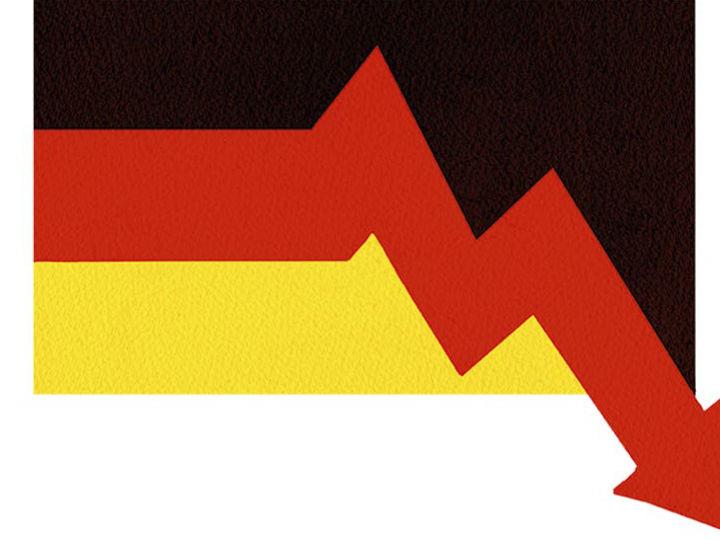by Uwe Bott*
There is a renewed debate over the relevance of the “Washington Consensus.“ In some ways, this is long overdue. Even long-time advocates of sticking to classic concepts of macroeconomic policymaking – such as free trade always produces national wealth or the “invisible hand” of markets is always the more effective than anything else – must acknowledge one very sore point: Even by their own logic, the results have been disappointing.
Win-win? Yes, one for China, the other for the CCP
True, China got wealthier and so did some other Asian countries. But was it a win-win? If you measure wealth purely by GDP, then sure! The United States got “richer,” as did most advanced countries.
But what happened inside all of these countries? The level of domestic income inequality became unbearably large. Now, in much of Western Europe the resulting pressures can still be endured up to this point, mainly because it never followed the rugged individualism of the United States.
But even in Europe, the strains and stresses are tearing at the social contract that have held those democracies together for decades.
The perspective of young people
To see how this is playing out, just ask yourself one simple question: Why do we find so many young people on the streets of France demonstrating against pension reform?
After all, the French pension system, as currently structured, is harming their own future prospects for “prosperity” since they would have to shoulder ever larger financial contributions to keep the system afloat for the generation now retiring.
They are on the streets for several reasons: First, there is this strong consensus among large parts of the younger generations that – regardless of the issue, whether it is trans-genderism (which directly affects what, 0.01% of the population?) or pensions (which affects a lot of people) – there is a common thread: “First they go after ‘them’ – and then they come for you.”
In other words, there is a new political and social type of “solidarity” that is evolving although nobody really calls it that (don’t get me wrong, France needs pension reform).
Richer in what?
But once you step outside the Washington Consensus, you have to ask yourself what it actually meant. It meant “richer” in material goods.
Richness with regard to those goods came at the price of environmental destruction that is becoming so severe that nobody knows for sure for how much longer this earth will sustain livable conditions.
“The last generation” terminology is not a joke
In that regard, “the last generation” terminology is not a joke. Like all things meant to wake up people, it is also misused by those who are insane.
But that does not suggest that classifying oneself as a member of the “last generation” is not the result of completely rational, reasonable and justifiable fear. It is indeed existentialist.
The evidence is that the planet is in irreversible decline. The only question is how long it will take to come to the tipping point. Ten years? Twenty? One hundred? Or more? I do not know, neither does “the last generation,” but the existentialist fear is anything but irrational.
True for boats, not true in economics
So, in the end the Washington Consensus stands and falls over the definition of wealth. The Washington Consensus is predominantly about advancing material wealth and consumerism. Its presumed “positive equation” – that if one country gets richer, all countries get richer – is as true as the much-used capitalist phrase “A rising tide lifts all boats.” True for boats, not true in economics.
In fact, the Washington Consensus was a “negative sum” game. It ill-defined the meaning of wealth. It helped China and some others to reach new heights of material wealth at the costs of greater, not lesser oppression and exploitation within their own borders and to the benefits of a very few inside those borders.
Then there is the added cost of significantly shrinking the middle classes in the West. To that, one needs to add the global cost of a likely irreversible level of environmental destruction.
Plus there is the cost of one of humanity’s greatest accomplishments, free and democratic societies. Unless we are lucky, aside from our own plutocrats, the only real “winners” are the oligarchs around the world as well as the advocates of global authoritarianism. That is in itself a surreal outcome.
It would not just be ironic – but an outright tragedy – if the major beneficiary of the long-term advocacy of the “Washington Consensus” were the Chinese Communist Party and its game plan for complete and utter subjugation of the world.
Conclusion
The Washington Consensus was a negative sum game. Unbeknownst to even its creators (or at least most of them), and unbeknownst to its future adherents, it had one single outcome – the creation of a Chinese superpower.
China’s Communist Party is ruthlessly pursuing a path to become so strong economically, politically and militarily that, with the political cancer growing inside our own societies, it may well end freedom in our lifetimes.
As if that weren’t enough, unless we are very lucky, the CCP, in its quest to lock in the CCP’s hold on power inside China, could even destroy the planet during a relatively short time period.
Jake’s national search
Thus, despite the attempt by the U.S. National Security Advisor Jake Sullivan to come up with a new “Washington Consensus” that at least serves U.S. national interests better, the very real question is this: Can one really imagine a new consensus?
The reason for this sincere question is simple: The divisiveness we now have to contend with was the (unpredicted) end result of the old consensus.
*Chief Economist of The Global Ideas Center and Senior Editor at The Globalist
**first published in: Theglobalist.com




 By: N. Peter Kramer
By: N. Peter Kramer

